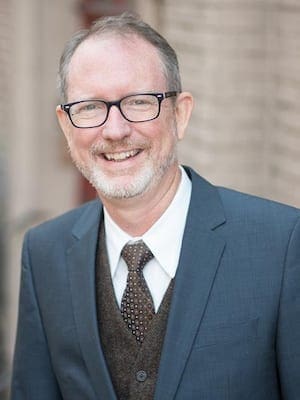According to a recent St. Louis “Post-Dispatch” story, a creationist spoke in three Baptist churches in Potosi, Mo., prior to speaking to public school students in science classes. This might lead people to conclude that Christians generally–and Baptists specifically–support such activities. Given the statistics quoted, that 64 percent of Americans support teaching creationism alongside evolution, this actually seems like a reasonable conclusion.
However there are sizeable numbers of Christians, including a substantial and vocal number of Baptists, who abhor the idea of creationism being taught in any publicly supported science classroom. There are two simple reasons for this: First, we believe science should be taught in science class. Second, we believe that government should stay out of the religion business.
It never ceases to amaze me how people who believe they are following one who said that “truth shall set you free” refuse to see the simple truths of contemporary (and even not so contemporary) science.
Biologists, as a group, do not question the evolutionary process, geologists do not question that the earth is well over 5,000 years old and anthropologists do not doubt that human cultures date well back beyond a literal reading of the Bible.
This is science, the teaching of which should enable students to learn its methodology, as well as the sometimes uncomfortable answers that flow from that process.
I doubt that the creationist who visited Potosi refuses to see a doctor when he is sick. Yet what that doctor does is based on science; indeed, some of the same science the creationist circumvents with his ideological views. Creationism and intelligent design can be fit subjects for discussion in public schools, but in a philosophy-of-religion class.
I happen to think that intelligent design has some interesting things to say to those who believe that evolution makes the idea of God unnecessary. But I don’t think that discussion is scientific. It is sometimes philosophical and always religious.
Early in this country’s history, Baptists were among those who fought hard for religious liberty. We believed then that coerced faith is not faith, that the worst thing for any religion is for government to “establish” it, and that allowing church control over government didn’t do anyone any good, either.
Part-time Baptist Roger Williams, following some of the ideas of philosopher John Locke, helped found Rhode Island and the movement to keep church and state separate.
Baptist pastor John Leland influenced James Madison in this regard, and Madison promised Leland that he would do everything in his power to see that religious freedom and individual rights would be incorporated into the Constitution by amendment. They were.
I fear that Christian people too often sell their souls to the idol of certainty in exchange for a little peace of mind. I also fear a society that has allowed the religious views of some to hinder scientific progress for many. And I hold these concerns as a faithful Baptist and a committed Christian.
For support, I look back to Baptists who believed if they were to be free, others must be free as well. And I look to Jesus Christ, who taught love above all. Freedom and love dictate commitment to the progress of science and the clear separation of church and state.
Scott Stearman is senior pastor of Kirkwood Baptist Church in St. Louis. This column ran as a guest column in the St. Louis Post-Dispatch and is reprinted here from the church Web site.
Stearman directs the International Advocacy Baptist Collaborative that seeks to amplify and coordinate the advocacy work of the global Baptist family at the United Nations and in WDC. He is vice chair of the board of trustees for the Parliament of World Religions and writes regularly on the intersection of religion and international/cultural affairs. For over three decades, he served as a pastor in the Christian (Baptist) tradition. His educational background includes theological degrees from Southwestern and Princeton Seminaries and a Ph.D. in philosophy from the University of Oklahoma.

